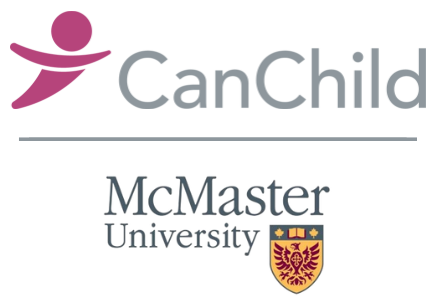4 short videos co-developedwith youth, parents, trainees,and researchers to promotediscussion and learning onauthentic and meaningfulpartnerships in research.
Read Resources
17 resources found
Family Centred Service Sheets
Family-centred service is an approach to providing services to children with special needs. As suggested by the name of this approach, the family is considered to be at the centre of the services. This makes family centred approaches different than…
Read Resources
Canadian Occupational Performance Measure (COPM)
The Canadian Occupational Performance Measure (COPM) is a measurement tool that assists therapists in using a family-centred approach to service delivery by indicating the family’s priorities.
Read Resources
Children with disabilities in Ontario: A profile of children’s services.
Part 1: Children, families and services, Part 2: Perceptions about family-centred service delivery for children with disabilities and Part 3: Factors affecting family-centred service delivery for children with disabilities.
Read Resources
Creating the MPOC, Part 2: Validation of a measure of processes of care-giving
This cross-sectional study continued a multi-year program of research conducted to understand the relation between caregiving offered to parents of children with neuro-developmental disabilities and parents’ mental health
Read Resources
Family-Centred Service: Completed Studies Reports
A studies series on the topic of Children with disabilities in Ontario: A profile of children’s services.
Read Resources
Family-Centred Service in Ontario: A “Best Practice” Approach for Children with Disabilities and Their Families
Family-centred service is a philosophy and method of service delivery that: recognizes parents as the experts on their child’s needs; promotes partnerships between parents and service providers, and supports the family’s role in decision making about services for their child.
Read Resources
Family Life – Move & Play Study
This report focuses on what parents told us about their families at the 2nd session (a telephone interview). We asked about many different things, for example: family activities, the supports that families have in caring for their children, and the home environment.
Read Resources
Knowledge Broker Study Report
Knowledge brokering is the process of “bringing people together, to help them build relationships, uncover needs, and share ideas and evidence that will let them do their jobs better.
Read Resources
Knowledge Transfer in Health Care
In health care, there has been increasing recognition of the need to facilitate the transfer of research evidence into clinical practice and policy development.
Read Resources
